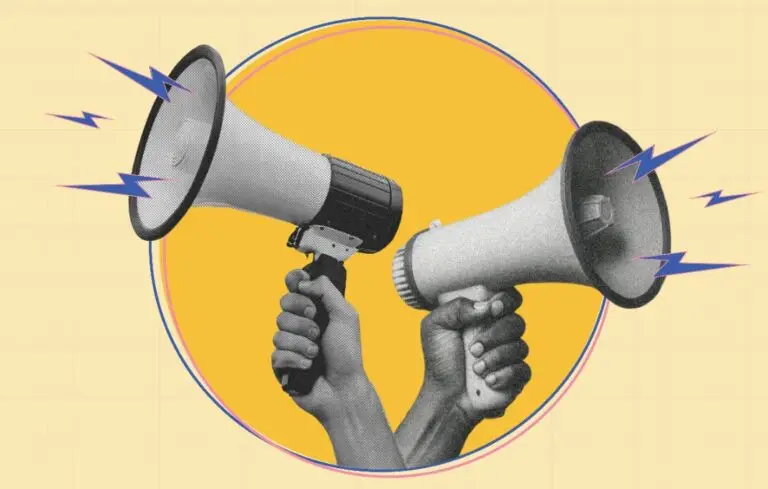While most of the companies are busy cutting cost and downsizing budgets owing to the current economic crisis, industry pundits are of the opinion that it is not only essential to hold on to the existing marketing budget allocations, but also bolster them to extract maximum out of the opportunities triggered by the onset of recession.’
“Don’t cut that budget. Recessions offer what may be unprecedented opportunities to market in an environment of relatively less noise, as others cut back,” says Ken Makovsky, quoting AdAge editor Jack Neff.
Ken Makovsky, President of Makovsky + Company, a premier PR firm based in NY, points out that many companies are wrestling with the one common question today on cutting cost: “In these troubled times, should we be cutting back on our marketing initiatives?” Responding to the question, Makovsky feels recessions are no times to cut back on the marketing budgets.
“If you listen to Advertising Age, academics, social scientists and other marketing experts, you won’t cut your marketing budget at all ever!” remarks Makovsky.
Writing for his blog, “My Three Cents” Makovsky believes ramping up marketing initiatives, alongside increased public relations activity during troubled times is a humble investment. “We’re talking about a modest investment in time and money that delivers a major return on investment,” he says.
Citing scores of studies and reports supporting his claims, Makovsky says, Harvard Business School professor John Quelch; Gary Lilien and Arvind Rangaswamy, professors at Penn State’s Smeal College of Business; McGraw-Hill all agree that increasing marketing and/or advertising expenditures in a recession yields powerful benefits, including better business performance, increased sales, higher profits and a dramatic positive change in market position study.
“In a recession, consumers become value oriented, distributors are concerned about cash, and employees worry about their jobs. But a downturn is no time to stop spending on marketing, instead it is for you to understand how the needs of your customers and partners change, and adapt your strategies to the new reality,” explains Professor John Quelch in his blog.
The McGraw-Hill study of U.S. recessions which analyzed 600 industrial companies, found that B2B firms that maintained or increased their advertising expenditures during the 1981-1982 recession grew sales by 256 percent, both during the recession and for the following three years, than those that eliminated or decreased advertising. “By 1985, sales of companies that were aggressive recession advertisers had risen 256 percent over those that didn’t keep up their advertising,” the McGraw-Hill research report says.
Marketing experts say previous economic downturns have demonstrated how large companies launched fierce marketing campaigns to grab market share from their rivals. “During the 2001 recession, Dell and Wal-Mart saw the downturn as an opportunity to invest more than their weaker rivals in marketing. They were following the path laid during the Great Depression, when Camel cigarettes and Chevrolet were known for their aggressive marketing and grabbing market share from their rivals,” says Makovsky quoting Anna Maria Virzi, executive editor of The ClickZ, a NY based expert advisory firm on digital marketing.
Similarly, the State’s Smeal College of Business study which surveyed 154 senior marketing executives in 2005, showed how certain firms performed well during a recession, seeing the downturn as an opportunity and upping their marketing spending.
A report published in the BNET Blog, an intelligence provider for management professionals, discloses how companies such as P&G, Intel and Wal-Mart explicitly demonstrated economic downturns as a means of launching aggressive marketing campaigns. “Procter & Gamble pushed Ivory soap during the Great Depression, Intel launched “Intel Inside” during the 1990-1991 recession, and Wal-Mart smothered competitors with Every Day Low Prices during the 2000-2001 post-bubble slowdown,” the Bnet report said quoting the Smeal College Study.
Interestingly, a CMO Club survey also opposed the idea of cutting marketing budgets, saying marketing budgets haven’t been affected by the recent economic downturn.’ The survey which was released in May 2008, pointed out that 71 percent of survey respondents said their marketing budgets have not been reduced in 2008, while only 14 percent of those who said they had seen a budget cut, attributed the cut to recessionary pressures.
Even Seth Godin, an online marketing expert and an established author, known for popularizing the concept of permission marketing, believes it is necessary to spend more on marketing, as it helps bolster consumer confidence.
In his blog, Godin writes: “why do banks spend so much money on marble lobbies, high ceilings and yes, $400 million to name a baseball stadium? For the same reason that so many people have a green front lawn,” he says adding that such expenditure is nothing but organized waste. “Profligate spending designed to communicate confidence and just a bit of hubris.”
Godin believes in times of financial stress and bailouts, the obvious solution (eliminate all the waste!) is not the one that works. “In fact, in these times, we’re more likely than ever to be nervous about the status of the organization we’re working with,” remarks Godin in his blog, which is considered as one of the most popular business blogs in the world.
Related Links:
- Should You Cut Your Marketing Budget During a Recession?
- Beat the Recession with an Aggressive, Strategic Marketing Budget






